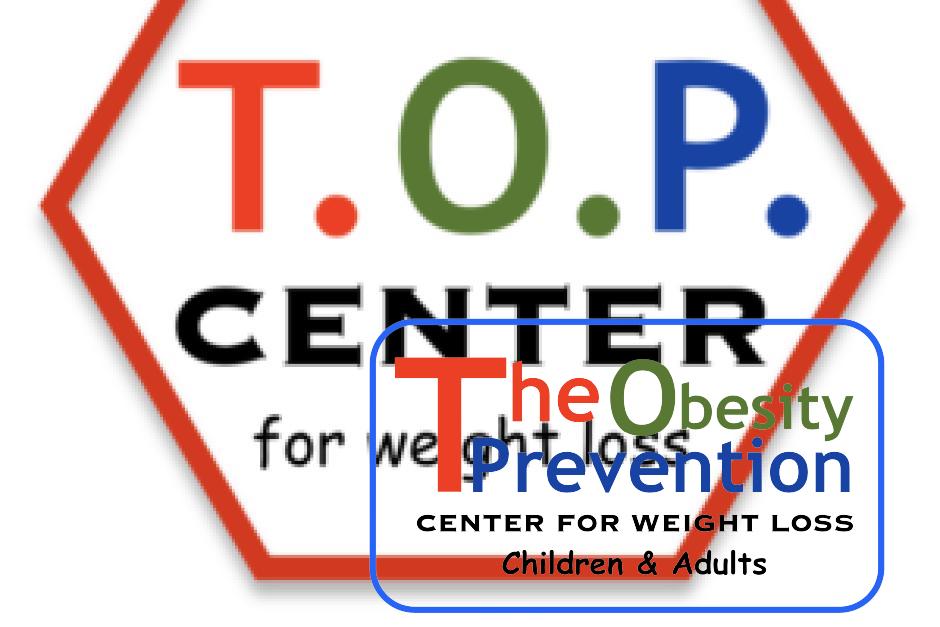Polycystic Ovary Syndrome, often referred to as PCOS, touches the lives of countless women around the globe. One of its challenging facets is the propensity for weight gain, making shedding those extra pounds an uphill battle. Yet, hope is far from lost. Armed with the right knowledge and strategies, women grappling with PCOS can effectively navigate this condition and work towards sustainable weight loss. In this comprehensive guide, we’ll dive into how PCOS influences weight and offer practical advice, spanning dietary adjustments, exercise, lifestyle shifts, and potential medical interventions and supplements. Our aim? To empower you to manage PCOS and embark on a successful journey towards achieving your weight loss goals.
Understanding PCOS and Its Weight Implications
Polycystic Ovary Syndrome, or PCOS for short, stands as a prevalent hormonal issue among women of reproductive age. In the United States alone, it affects up to 5 million women. PCOS is an intricate web of symptoms, encompassing irregular or infrequent menstrual periods, excess hair growth, acne, and often, obesity. Inside the ovaries of those with PCOS, an abundance of small, fluid-filled sacs known as follicles take root. These sacs house immature eggs that never fully mature, leading to irregular ovulation or even its complete absence.
PCOS and Its Impact on Weight
One significant hallmark of PCOS is its disruption of hormonal equilibrium, often resulting in weight gain or acting as a barrier to weight loss. PCOS is renowned for boosting insulin levels within the body, pushing it to store more energy as fat rather than utilizing it as a source of vitality. This hormonal turbulence can also translate into intense cravings for carbohydrates due to erratic insulin levels, which in turn compounds the struggle with weight. It’s a disheartening cycle where weight gain exacerbates PCOS symptoms, subsequently intensifying the challenge of weight loss.
Recognizing PCOS Symptoms
The symptoms of PCOS typically emerge during puberty or the onset of the first menstrual cycle, but they can also arise later in response to substantial weight gain. They encompass irregular periods, heavy menstrual bleeding, excessive hair growth, acne, weight gain, male-pattern baldness, and skin darkening. These symptoms can evoke feelings of self-consciousness, underscoring the pivotal role of weight loss in bolstering both physical and mental well-being.
The Connection Between PCOS and Insulin Resistance
Insulin resistance stands as a key player in the weight gain experienced by women with PCOS. This condition unfolds when the body’s cells exhibit inadequate responsiveness to insulin, prompting the body to manufacture more insulin in its attempt to usher glucose into cells. Elevated insulin levels culminate in heightened fat storage and, consequently, weight gain. Remarkably, almost 70% of women grappling with PCOS grapple with insulin resistance, irrespective of their current weight.
Health Consequences of Weight Gain in PCOS
Weight gain, particularly centered around the abdomen, is a common occurrence in women with PCOS. If left unchecked, it doesn’t merely culminate in obesity but also elevates the risk of a slew of health problems, including diabetes, heart disease, sleep apnea, and uterine cancer. Thus, weight loss emerges as a pivotal facet of effectively managing PCOS.
Effective Weight Loss Strategies for Women with PCOS
In the pursuit of successful weight loss while navigating PCOS, the adoption of a wholesome lifestyle assumes paramount importance. This entails maintaining a balanced diet teeming with whole grains, an assortment of fruits and vegetables, lean proteins, and wholesome fats. Steering clear of processed foods helps maintain stable blood sugar levels, thwarting unnecessary weight gain. Beyond dietary tweaks, regular physical exercise enhances insulin sensitivity, thus fostering weight loss. The importance of ample sleep can’t be overstated; sleep deprivation can derail the body’s insulin regulation. By embracing mindfulness practices to manage stress levels, individuals can alleviate PCOS symptoms, ultimately aiding weight loss endeavors. Through these combined strategies, the management of PCOS and the maintenance of a healthy weight become entirely achievable.

Dietary Recommendations for PCOS
Guidance on Navigating PCOS Through Nutrition
Effectively managing PCOS while striving for weight loss is intricately linked to maintaining a well-rounded diet. A diet brimming with lean proteins, low glycemic index (GI) foods, and a wealth of dietary fiber is the usual prescription for women with PCOS. These dietary components prove instrumental in regulating insulin, nurturing gut health, maintaining blood sugar levels, and facilitating weight loss.
The Role of Low Glycemic Index Foods
Low GI foods unfurl glucose into the bloodstream in a gradual, measured fashion, averting insulin spikes. As insulin resistance is a frequent companion to PCOS, the consumption of low GI foods such as brown rice, quinoa, barley, legumes, and a plethora of fruits can foster insulin level management and, in turn, weight control.
Benefits of Embracing High Fiber
High-fiber foods assume a position of importance for women grappling with PCOS due to their multi-pronged benefits. They bolster digestion and satiety, helping manage appetite by retarding digestion and alleviating hunger pangs. Foods rich in fiber, spanning fruits, vegetables, nuts, seeds, legumes, and whole grains, emerge as stalwarts in the realm of weight reduction or management for PCOS.
Highlighting the Role of Lean Proteins
Lean proteins emerge as essential allies for women navigating PCOS, particularly when fixated on weight loss. They aid in the repair and construction of muscle tissues, buttress the immune system, and, crucially, offer satiety. This sense of fullness serves as a powerful deterrent against overindulgence, a cornerstone of weight control in the context of PCOS. The buffet of options for lean proteins includes poultry, fish, lean meats, eggs, lentils, and tofu.
Portion Control Matters
Effectual weight control in the PCOS realm frequently encompasses the domain of portion control. Consistently ingesting more calories than the body can expend typically leads to weight gain. Therefore, managing portion sizes through the consumption of balanced, smaller meals throughout the day assumes a pivotal role in maintaining stable blood sugar levels, curbing excessive hunger, and averting overindulgence.
Mindful Eating Practices
The incorporation of mindful eating practices can bring substantial dividends for women striving to lose weight while wrestling with PCOS. By paying close attention to both what is eaten and the quantity consumed, individuals can cultivate a more profound understanding of their hunger and fullness cues. These practices may encompass deliberate, unhurried chewing, a resolute avoidance of distractions during meals, and an acute awareness of physical hunger signals, not emotional triggers. Heightened awareness of dietary habits enhances the efficacy of physical and dietary adjustments tailored for PCOS weight loss.
Limiting Weight-Inducing Foods
Certain foods have the potential to stymie weight loss efforts for women with PCOS and should either be minimized or omitted. These dietary culprits include sugary beverages and desserts, refined grains, high-fat meats, and processed foods. These dietary transgressions can lead to surges in blood sugar levels, thereby promoting weight gain and exacerbating PCOS symptoms.
Exercise and PCOS
Welcoming Aerobic Exercise
The regular incorporation of aerobic exercises into one’s lifestyle, encompassing activities like walking, swimming, and cycling, can prove instrumental in PCOS management. Not only do these aerobic pursuits burn calories and enhance heart health, but they are also remarkably effective at diminishing body fat and insulin resistance, two pivotal variables in the PCOS equation. Even the everyday chores, from housework to gardening, can contribute to the realization of weight loss goals.
Championing Strength Training for PCOS
Strength training often flies under the radar but assumes a pivotal role in PCOS weight loss strategies. Endeavors such as weightlifting, resistance band exercises, or bodyweight workouts serve to construct lean muscle mass, a substance that, notably, incinerates more calories at rest compared to fat. This surge in metabolism can foster improved blood sugar levels and heightened insulin sensitivity, both indispensable facets of PCOS management.
Exploring High-Intensity Interval Training (HIIT)
High-Intensity Interval Training, or HIIT, presents another compelling option for women with PCOS intent on shedding pounds. HIIT entails brief yet intense bursts of exercise, interspersed with concise periods of rest. The ‘afterburn effect’ of HIIT keeps the body burning calories at an elevated rate even after the workout concludes. This form of exercise often proves time-efficient, making it an excellent fit for those leading busy lives. Furthermore, the intensity of HIIT workouts yields significant enhancements in cardiovascular and metabolic health, which further buttress PCOS management.
The Imperative of Consistency
Consistency within one’s exercise regimen constitutes a linchpin in the management of PCOS symptoms and the pursuit of weight loss. Regular physical activity diminishes insulin resistance by enhancing cell responsiveness to insulin. Given that insulin resistance frequently accompanies PCOS and contributes to weight gain, this benefit stands as an essential piece of the puzzle. Furthermore, consistent exercise mitigates inflammation, enhances mood, and has the potential to alleviate other PCOS symptoms, such as excessive hair growth and acne.

Exercise and Dietary Synergy
While exercise possesses its individual merits, its synergy with dietary modifications is often the most potent approach to PCOS weight management. A balanced diet that accentuates whole foods, inclusive of fruits, vegetables, lean proteins, and whole grains, complements exercise by further galvanizing metabolism and curbing insulin resistance.
Lifestyle Changes and Stress Management
Embracing Lifestyle Changes for PCOS Weight Control
For women grappling with PCOS, weight loss frequently necessitates a substantial overhaul of their lifestyle. PCOS can lead to hormonal imbalances and metabolic hitches that either precipitate weight gain or impede weight loss. The incorporation of healthy lifestyle changes can help redress the hormonal balance, ameliorate metabolism, and pave the way for weight loss. The commitment to staying physically active, whether through activities like walking, running, swimming, or other forms of exercise, bolsters insulin sensitivity, reduces blood sugar levels, and supports overall health.
Prioritizing Sleep
Securing a sufficient dose of quality sleep represents another pivotal lifestyle change that can catalyze weight loss. During sleep, the body undergoes rejuvenation, overseeing the regulation of various hormones. Sleep deprivation can disrupt the orchestration of these hormones, potentially precipitating weight gain. Cortisol, also known as the stress hormone, is another casualty of sleep deprivation. Elevated cortisol levels can lead to insulin resistance, cravings for unhealthy fare, and, in the long run, weight gain. Thus, the pursuit of restful, adequate sleep emerges as a non-negotiable pillar in the management of PCOS and the promotion of weight loss.
The Role of Stress Management
Stress management carries immense weight in both the control of PCOS symptoms and the pursuit of weight loss. Elevated stress levels can exacerbate PCOS symptoms and act as a hindrance to weight loss endeavors. Stress exercises its influence over hormones responsible for appetite regulation, potentially driving individuals towards overeating or making unhealthy food choices. Therefore, effective stress management emerges as a cornerstone in PCOS weight control.
The Merits of Relaxation Techniques
Effectively managing stress levels often dovetails with the practice of relaxation techniques such as yoga and meditation. Yoga, for example, marries stress relief with physical activity. Yoga poses not only bolster balance, flexibility, and strength but also serve to support weight loss. As a meditative practice, yoga cultivates tranquility of mind, an attribute that can significantly impact stress levels.
Meditation represents another potent relaxation technique. Consistent daily meditation holds the potential to diminish stress levels, alleviate anxiety, and elevate emotional well-being. Meditation bestows profound respite to the nervous system, enabling it to grapple with stress more effectively, consequently nurturing weight loss. Initiating this practice can be as simple as engaging in basic breathing exercises, with a progression towards guided meditation or mindfulness exercises.
Alternative Stress Management Techniques
Additional stress management techniques that have proven efficacy include progressive muscle relaxation, deep breathing exercises, and guided imagery. Counseling and cognitive-behavioral therapy (CBT) can also offer invaluable support for individuals aiming to navigate stress while managing PCOS symptoms.
Navigating Lifestyle Adjustments for PCOS Weight Control
Living with Polycystic Ovary Syndrome can indeed present challenges, but the adoption of lifestyle changes, such as adhering to a balanced diet, engaging in regular exercise, securing adequate rest, and embracing stress management through practices such as yoga or meditation, can fundamentally bolster weight management. These proactive transformations not only serve to optimize insulin function but also rectify hormonal imbalances, thereby promoting comprehensive well-being.

Medical Treatments and Supplements for PCOS
Pharmaceutical Interventions for PCOS
Medical treatments form a pivotal element in the arsenal for managing PCOS. Birth control pills, for instance, wield the power to regulate menstrual cycles, curtail excessive male hormone levels, and address issues like hirsutism, which entails excessive hair growth. While these medications may not directly translate into weight loss, the establishment of hormonal equilibrium they achieve can theoretically render weight loss endeavors more attainable.
The Role of Natural Supplements
Several natural supplements have garnered attention for their potential to manage PCOS. Omega-3 fatty acids, primarily found in fish oil, enhance insulin response and mitigate inflammation. Inositol, a sugar alcohol, bolsters insulin utilization and promotes ovulation, thereby potentially contributing to hormonal equilibrium and weight loss.
Cinnamon and turmeric also possess the reputation of naturally reducing insulin resistance. Nevertheless, it remains imperative to consult with a healthcare provider before embarking on any new supplement regimen.
Advantages and Considerations
While medical treatments and supplements proffer significant advantages, they also come laden with potential side effects and caveats. Birth control pills, for instance, may induce nausea, breast tenderness, and heighten the risk of blood clots. Metformin, another common medication for PCOS, might lead to gastrointestinal distress and presents risks for individuals with impaired liver or kidney function. Supplements can also interact with other medications. Hence, it is imperative to meticulously weigh these factors when electing a treatment strategy.
Each individual’s response to these approaches is unique, meaning the optimal course of action may diverge between individuals. Typically, PCOS treatment necessitates some degree of trial and error under the vigilant guidance of a healthcare provider. Medical treatments and supplements hold a pivotal place, yet a holistic approach that integrates lifestyle modifications often proves the most efficacious path to managing PCOS and realizing weight loss.
In Conclusion
The comprehension of PCOS and its intricate relationship with weight gain is foundational. By embracing a balanced diet replete with low GI foods, high in dietary fiber and lean proteins, alongside regular exercise and adept stress management techniques, individuals can markedly alleviate PCOS symptoms and bolster weight loss. Additionally, medical treatments and supplements may endow valuable supplementary benefits. Remember, you are not defined by PCOS; you possess the power to navigate this journey and take charge of your health.
Thank you for reading this post, don't forget to subscribe to our free newsletter
!
